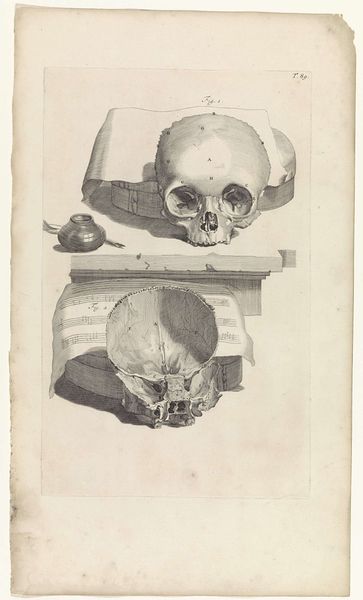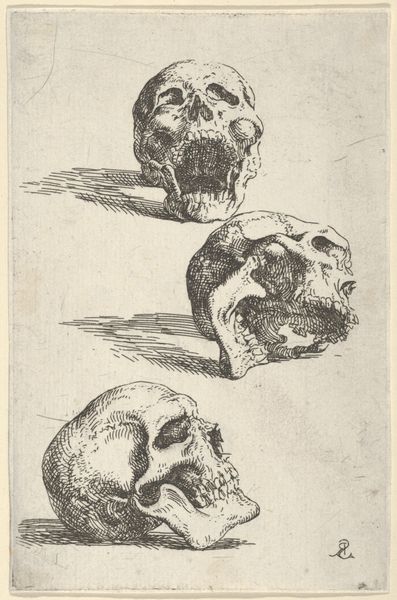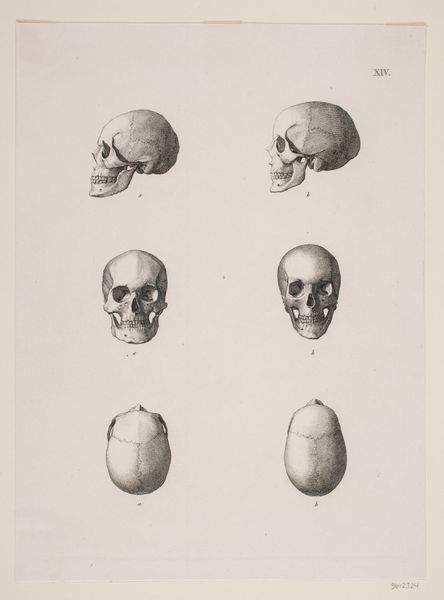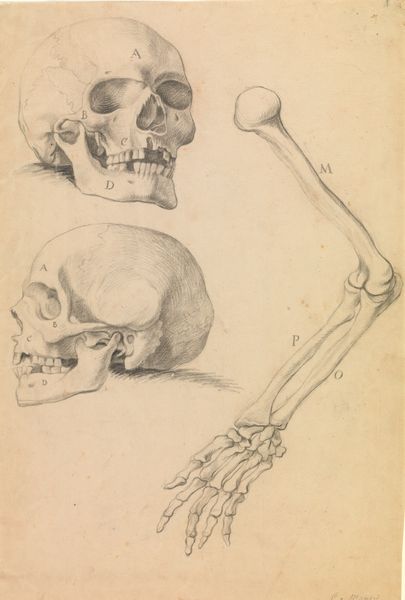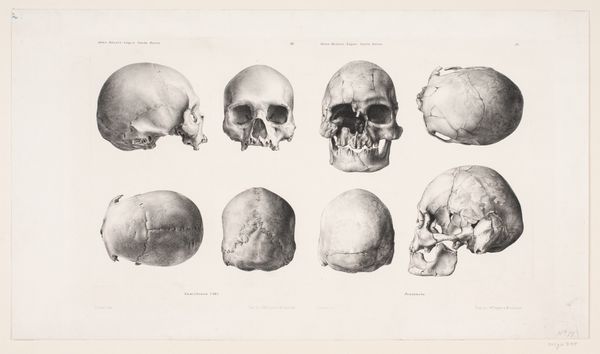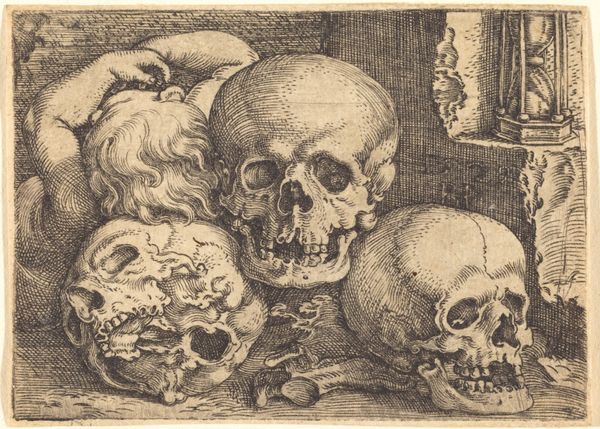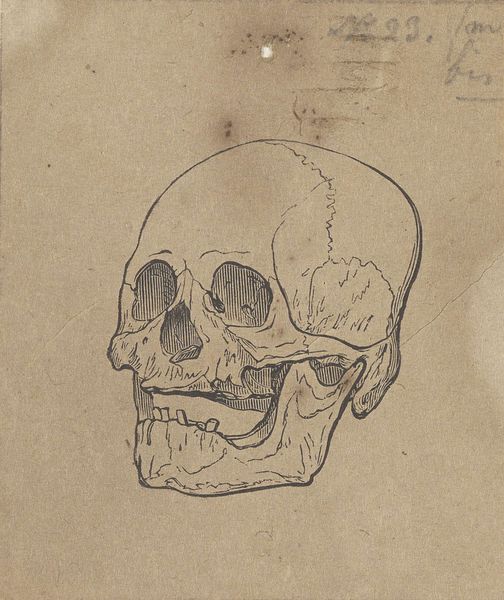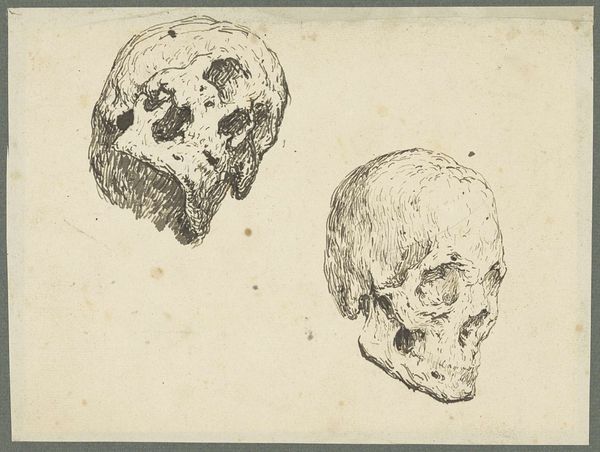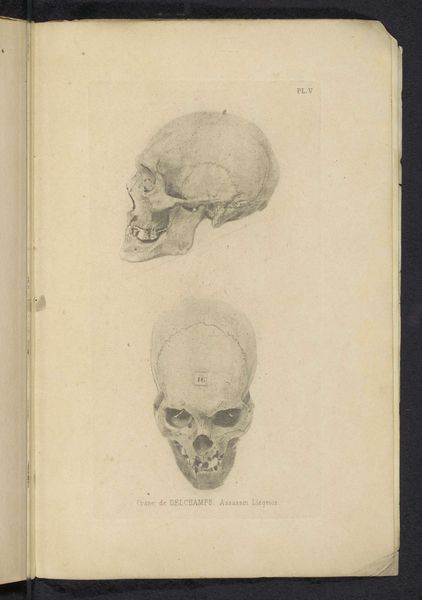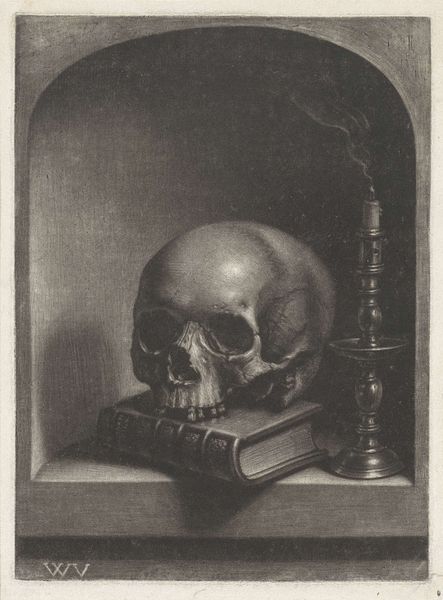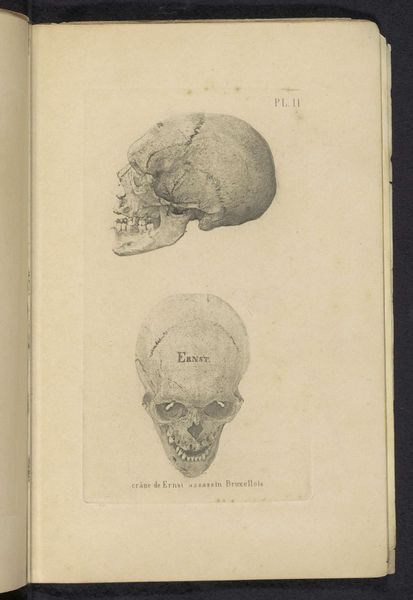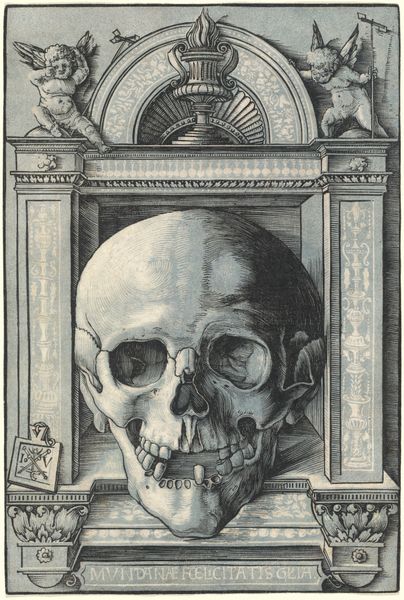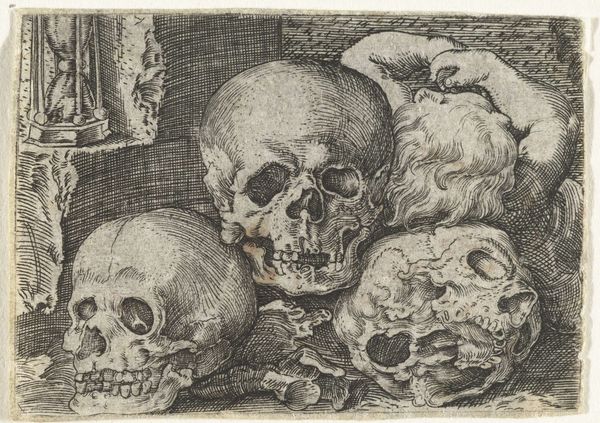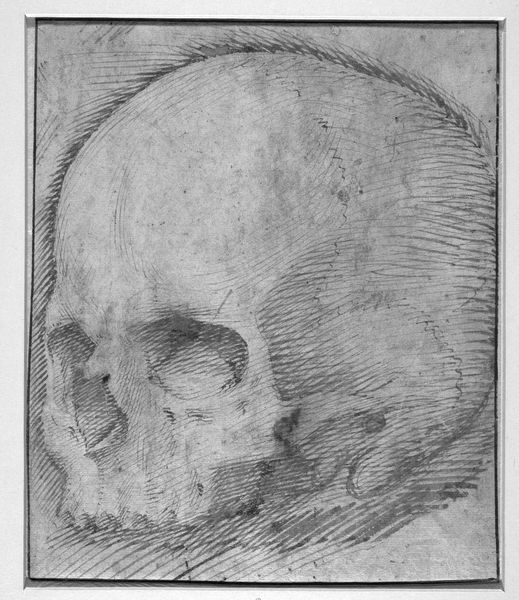
drawing, graphite
#
drawing
#
momento-mori
#
abstraction
#
symbolism
#
graphite
#
realism
Copyright: Public domain
Curator: Looking at this evocative graphite drawing from 1901 by Nicholas Roerich, titled "Skulls," I'm immediately struck by the rather confrontational and somber subject matter. What’s your initial take on it? Editor: Well, that’s putting it mildly! It's...intense. Raw. Like a visual shout. I feel the weight of each skull. Individually and collectively, they pulse with... I don't know...quiet rebellion? It's a strange mix of macabre and, dare I say, beautiful. Curator: Macabre, indeed. "Skulls" resonates deeply within the "memento mori" tradition—a common theme that spans many periods. Considering this piece in the context of Russian Symbolism during the early 20th century allows for some important discussions on mortality. There are social anxieties about a new century brewing that the artist taps into. Editor: You're absolutely right! It's not just about death, is it? There’s a real tension about…about what awaits us, in all senses, right? This fear of change, dressed up in skulls! Nicholas seems to stare the fin-de-siècle dread right in the face. I love how he captures light—it's soft, ethereal, yet those deep graphite shadows hold the inevitable. Curator: And how does Roerich use form to address the inevitable? Do we note something other than realism in it, I think so, this goes a little bit in abstraction? The skulls are certainly realistically rendered, yet stacked one behind the other, a pattern that feels as if he's obscuring identity…even in death. Editor: Yes, obscuring identity is right! Maybe he wanted to explore our sameness…our unified end…underneath all this? I like how Roerich gives some skulls clearer definition, yet leaves the ones on the periphery vague—sketches that blur into oblivion. The piece really hums! Curator: Right. These themes and techniques make "Skulls" a powerful statement on the ephemeral nature of existence. And, on collective historical experience, in a way. Editor: "Skulls," wow. After all this reflection, I look again and think it might serve us well to embrace that little flicker of rebellion Roerich captured! Because this piece stays with you, even after the quiet shout fades away.
Comments
No comments
Be the first to comment and join the conversation on the ultimate creative platform.
